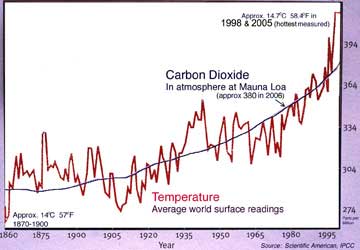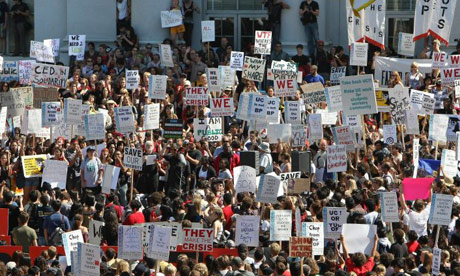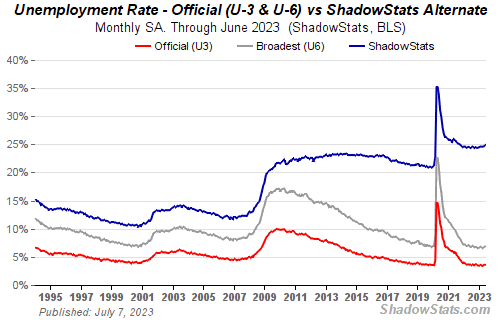As well as providing juicy titbits about the Obama marriage, a new book supports the right-wing theory that the president needed help to produce ‘Dreams From My Father’
FIRST POSTED SEPTEMBER 25, 2009
The long-held suspicion in American right-wing circles that Barack Obama was not the sole author - not even the lead author - of his brilliantly received 1995 memoir, Dreams From My Father, has been rekindled by the publication of a new book about the Obamas, Barack and Michelle: Portrait of an American Marriage.
The book by Christopher Andersen, author of a string of unauthorised celebrity biographies, has received considerable media coverage in recent days because of its claim that Barack and Michelle came close to splitting up. She apparently was bitter about her husband devoting too much time to his political ambitions and not enough to his family. She hated his chain-smoking and snoring, and he complained to friends that his wife was unreasonable, Andersen claims.
Receiving much less attention is the fact that the book has opened a can of worms concerning the provenance of Dreams From My Father. It appears to support the theory that Obama needed considerable help to produce Dreams - labeled by Time magazine "the best-written memoir ever produced by an American politician" - and yet has never owned up to using a ghost writer or even co-author.
The man most excited by this revelation is Jack Cashill, an American writer who has been producing articles since last summer for the conservative site American Thinker in which he argues that Obama could not have written Dreams on his own. Cashill argues that his likely collaborator was his controversial Chicago neighbour, Bill Ayers.
Ayers was the former anti-Vietnam war activist whose relationship with Obama came up during the presidential election campaign in 2008. John McCain tried to make capital out of Obama befriending a known radical who had co-founded of the Weather Underground group. The controversy eventually dropped out of the headlines after Obama dismissed Ayers as just "a guy who lives in my neighborhood".
But if Cashill's theory is right, Ayers was far more than that: indeed, he should perhaps be taking the credit for the fabulous reviews and prizes Dreams has received since publication. Forget Dreams From My Father - a more accurate title might be Thoughts From My Neighbour.
The anecdotal evidence in Andersen's book - some of it thought to have come direct from Michelle Obama, though there is no proof of that - certainly supports Cashill. Amid the juicy morsels about Michelle and Barack's sometimes miserable marriage is a passage in which Andersen reveals how in the early 1990s Obama was under real pressure from his publishers to deliver the manuscript of Dreams.
Obams had been given the chance to write the memoir not because anyone thought he would one day be President of the United States, but because, in 1990, he became the first African-American to be elected president of the Harvard Law Review.
Simon & Schuster offered an advance of $125,000, but despite taking a holiday in Bali in an effort to get going on it, the contract had to be cancelled because Obama could not deliver.
A second publisher stepped in - the Time Books division of Random House - and it was their deadline that was looming when, according to Andersen's book, Michelle, fearing a second failure, suggested that Barack should seek the help of "his friend and Hyde Park neighbour Bill Ayers".
Obama had made taped interviews with relatives about his family history, and, according to Andersen, those "oral histories, along with a partial manuscript and a truckload of notes, were given to Ayers".
Andersen quotes a neighbour in the Hyde Park area of Chicago, where Obama and Ayers lived, who said of the two, "Everyone knew they were friends and that they worked on various projects together. It was no secret. Why would it be?"
Andersen concludes by saying: "In the end, Ayers's contribution to Barack's Dreams From My Father would be significant - so much so that the book's language, oddly specific references, literary devices, and themes would bear a jarring similarity to Ayers's own writing."
Jack Cashill was cockahoop yesterday following the publication of Andersen's book. Writing on American Thinker, he said Andersen had laid out the scenario of how Dreams came about "just as I had envisioned it".
He added: "Andersen has blown a huge hole in the Obama genius myth without intending to do so."
In the course of Cashill's detective work, which can be followed in a series of articles for American Thinker since July 2008, he sought to establish that Obama showed no signs of being a decent writer - certainly not one who would win literary prizes - before Dreams.
Cashill dug up two early pieces of Obama's writing, a 1983 article, Breaking the War Mentality, for the Columbia University news magazine, Sundial, and a 1988 essay titled Why Organize, which was reprinted two years later in a book called After Alinsky: Community Organizing in Illinois.
"In the Sundial article there are an appalling five sentences in which the subject noun does not agree with the verb," says Cashill. "In some sentences, like the following, the punctuation and word selection are as random as the grammar: 'The belief that moribund institutions, rather than individuals are at the root of the problem, keep SAM's energies alive'.
"Although Why Organize seems to be better edited, in neither of these two clunky essays does Obama turn a single phrase that is clever, concise, or even vaguely memorable."
Cashill also found an unsigned student case comment for the Harvard Law Review written by Obama in 1990. "The prose here, although reasonably well edited, is even more dull and leaden," said Cashill.
Could Obama have learned to write between then and setting pen to paper on Dreams only a couple of years later?
No way, says Cashill. He quotes the neurologist Daniel Levitin's "ten-thousand-hour rule" as laid out for Malcolm Gladwell in his bestselling book on success, Outliers. This 'rule' dictates that "ten thousand hours of practice [in any subject] is required to achieve the level of mastery associated with being a world-class expert".
"Obama appears to have lopped about 9,900 hours off that standard," says Cashill.
Remember, Dreams From My Father wasn't just good, it was superb. Jonathan Raban called Obama "the best writer to occupy the White House since Lincoln". The Nobel Prize-winning author Toni Morrison said: "I was astonished by his ability to write, to think, to reflect, to learn and turn a good phrase... This was not a normal political biography.''
It certainly wasn't, if Jack Cashill's theory is correct. On the other hand, Cashill appears to have conveniently forgotten the pronouncement of an Oxford don, Dr Peter Millican, who said last year that it was "very implausible" that Dreams was written by Ayers.
Millican was contacted by a Republican congressman, Chris Canon, and his brother-in-law, a businessman called Robert Fox, who had heard that Millican had devised a computer software program that could detect whether works were by the same author by comparing favourite words and phrases.
The don offered to run the test on Obama's Dreams and Ayers's own memoir, Fugitive Days for a fee of $10,000 - but insisted the result must be made public. It has never been totally clear whether Millican actually ran his programme or simply made his prognosis after a brief comparison of the two texts.
If he didn't, now might be the time - if anyone's got $10,000 to spare to sort this matter out once and for all.




















